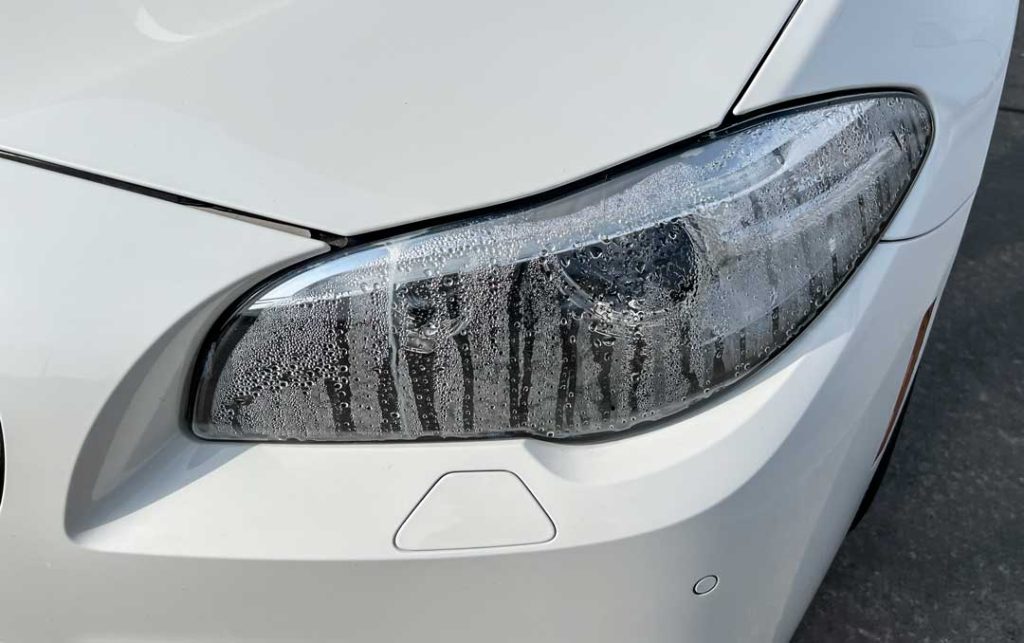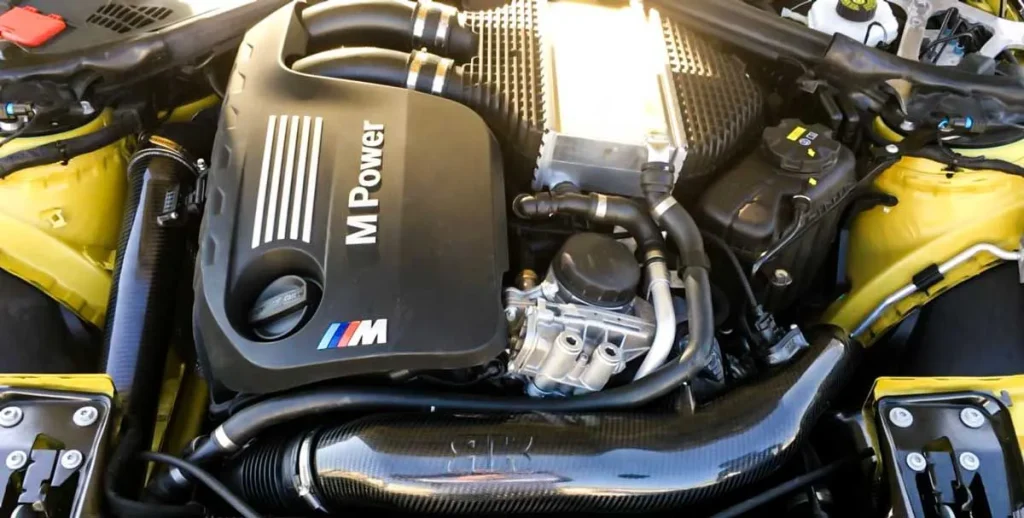BMW, short for Bayerische Motoren Werke AG (Bavarian Motor Works), is a German multinational company known for manufacturing luxury vehicles and motorcycles. Founded in 1916, BMW has a long Innovation and engineering excellence history.
History and Origins of BMW
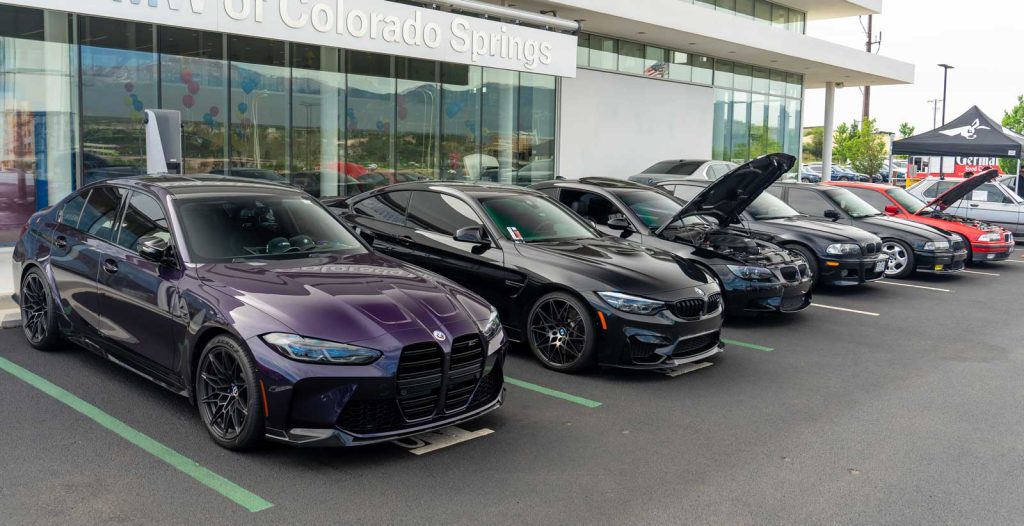
Founding and Early Years (1916-1920s)
- Foundation: BMW, or Bayerische Motoren Werke AG, was officially founded on March 7, 1916. The company originated from Rapp Motorenwerke, an aircraft engine manufacturer.
- Aircraft Engines: During World War I, BMW produced high-performance aircraft engines, gaining a reputation for engineering excellence. One notable engine was the BMW IIIa, a six-cylinder engine that excelled at high altitudes.
- Post-War Transition: The Treaty of Versailles prohibited Germany from producing aircraft engines after World War I. BMW shifted its focus to manufacturing railway brakes and other industrial products.
Diversification and Automobile Production (1920s-1930s)
- Motorcycles: In 1923, BMW introduced its first motorcycle, the BMW R32. This motorcycle featured an innovative flat-twin boxer engine, a design that became a hallmark of BMW Motorrad.
- Entry into Automobiles: BMW entered the automotive market 1928 by acquiring the Fahrzeugfabrik Eisenach, a company that produced the Dixi, a licensed version of the Austin 7. The Dixi became the basis for BMW's first car, the BMW 3/15.
Growth and Innovation (1930s-1940s)
- Pre-War Expansion: Throughout the 1930s, BMW expanded its automotive lineup, introducing models such as the BMW 303, which featured the company's first straight-six engine. BMW also developed the 328 sports car, which became highly successful in motorsport.
- World War II: During World War II, BMW returned to producing aircraft engines for the German military, including the BMW 801 radial engine and the innovative BMW 003 jet engine. The war effort significantly influenced the company's resources and operations.
Post-War Reconstruction (1940s-1950s)
- Destruction and Recovery: BMW's factories were heavily damaged during the war. Additionally, the company's Eisenach plant fell within the Soviet-occupied zone, leading to the establishment of the Soviet-controlled EMW (Eisenacher Motorenwerk).
- Resumption of Production: After the war, BMW resumed motorcycle production in 1948 with the R24. 1952, it returned to automobile production with the BMW 501 luxury sedan.
Financial Struggles and Revival (1950s-1960s)
- Financial Difficulties: BMW faced significant financial challenges in the 1950s, with limited sales and high production costs. The introduction of the Isetta microcar in 1955 provided a temporary boost, but the company's future remained uncertain.
- Turning Point: The launch of the BMW 700 in 1959 marked a turning point. This compact car achieved commercial success and helped stabilize the company's finances. A major shareholder, the Quandt family, invested heavily in BMW, ensuring its survival and future growth.
Expansion and Global Success (1960s-Present)
- New Class (Neue Klasse): In the early 1960s, BMW introduced the Neue Klasse, a line of compact sedans that included models like the BMW 1500 and 2002. These cars established BMW's reputation for sporty, driver-focused vehicles.
- Luxury and Performance: BMW expanded its range with luxury sedans (BMW 5 Series and 7 Series) and high-performance models (BMW M Series). The brand's emphasis on engineering, Innovation, and driving pleasure resonated with a global audience.
- Modern Era: In recent decades, BMW has focused on Innovation, sustainability, and expanding its product lineup. The introduction of the BMW i sub-brand for electric and hybrid vehicles, along with advancements in autonomous driving technology, underscores BMW's commitment to the future of mobility.
Logo and Symbolism
- The Blue and White Roundel: BMW's logo is one of the most recognizable in the automotive industry. The blue and white colors are derived from the Bavarian flag, reflecting the company's origins in Bavaria. The circular design symbolizes a spinning aircraft propeller, a nod to BMW's early days as an aircraft engine manufacturer. While popular, this interpretation was a later marketing creation; the Bavarian national colors inspired the original logo more directly.
Core Values and Philosophy
At the heart of BMW lies an unwavering commitment to delivering driving pleasure. The brand's motto, “The Ultimate Driving Machine,” is not just a slogan but a philosophy that permeates every aspect of its design and engineering. Each BMW is crafted to provide an exhilarating driving experience characterized by precise handling, powerful performance, and an intimate connection between driver and machine. This dedication to driving dynamics sets BMW apart, making every journey memorable.
Innovation is BMW's lifeblood. The company is always at the forefront of automotive advancements, from pioneering advanced engine technologies to leading the charge in electric mobility with the BMW i series. BMW's engineers and designers continually push the boundaries of what's possible, integrating cutting-edge technology into their vehicles to enhance performance, safety, and convenience. Whether it's the intuitive iDrive system, intelligent driver assistance features, or the latest in connectivity, BMW vehicles are designed to keep pace with the ever-evolving landscape of modern mobility.
Quality and luxury are synonymous with the BMW name. Every vehicle is a testament to the brand's dedication to excellence, featuring high-quality materials, meticulous craftsmanship, and a keen attention to detail. The interiors of BMW cars blend elegance and functionality, where premium leather, fine wood, and state-of-the-art technology create an atmosphere of sophistication and comfort. This relentless pursuit of perfection ensures that each BMW meets and exceeds the expectations of even the most discerning customers.
In essence, BMW's core values of driving pleasure, Innovation, and uncompromising quality come together to create a brand that is both timeless and forward-thinking. For enthusiasts and casual drivers alike, BMW offers a driving experience that is truly unparalleled, embodying a perfect blend of tradition and modernity.
Product Range
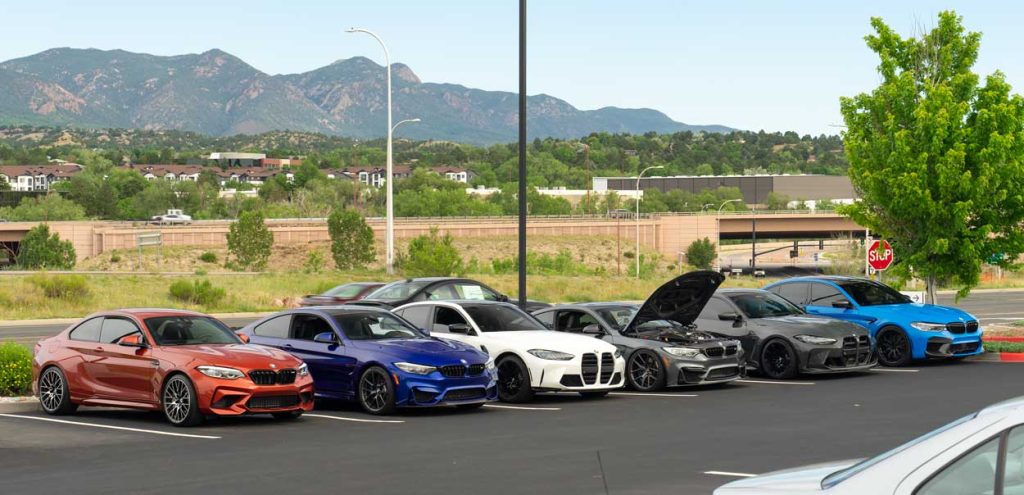
BMW's product range is as diverse as it is impressive, catering to a wide spectrum of automotive enthusiasts. From sleek and sporty coupes to luxurious sedans and rugged SUVs, BMW offers a vehicle for every driving style and preference. The series lineup, ranging from the compact and agile 1 Series to the wealthy and commanding 8 Series, reflects the brand's commitment to providing a comprehensive array of choices. Each series is meticulously crafted to deliver a unique driving experience, whether the agile handling of the 2 Series or the executive luxury of the 7 Series.
For those who crave high-performance thrills, BMW's M models are the ultimate expression of the brand's racing heritage and engineering prowess. Developed by BMW's legendary M division, these high-performance versions of standard models are equipped with powerful engines, advanced suspension systems, and aerodynamic enhancements. Icons like the M3 and M5 epitomize the perfect blend of everyday usability and track-ready performance, making them favorites among driving enthusiasts.
Regarding sustainable mobility, BMW's i models are pioneering electric and hybrid vehicles. The innovative BMW i3, with its distinctive design and urban agility, and the futuristic BMW i8, a plug-in hybrid sports car, showcase BMW's dedication to environmental responsibility without compromising on driving pleasure. These models embody BMW's vision for the future of mobility, combining cutting-edge technology with the brand's signature driving dynamics.
BMW Motorrad, the brand's motorcycle division, offers an extensive range of two-wheeled machines designed to cater to every type of rider. From the long-distance touring capabilities of the BMW R 1250 GS to the adrenaline-pumping performance of the S 1000 RR sport bike, BMW Motorrad delivers exceptional quality, innovative features, and thrilling riding experiences. The lineup includes adventure bikes, roadsters, tourers, and urban mobility solutions, ensuring every rider can find their perfect BMW motorcycle.
Comprehensive List of BMW Models
Current Models
1 Series
- BMW 116i
- BMW 118i
- BMW 120i
- BMW 128ti
- BMW M135i xDrive
2 Series
- BMW 218i
- BMW 220i
- BMW 230i
- BMW M235i xDrive
- BMW M240i xDrive
3 Series
- BMW 318i
- BMW 320i
- BMW 330i
- BMW 330e
- BMW M340i xDrive
- BMW M3
4 Series
- BMW 420i
- BMW 430i
- BMW 430d
- BMW 440i
- BMW M440i xDrive
- BMW M4
5 Series
- BMW 520i
- BMW 530i
- BMW 530e
- BMW 540i
- BMW 540d
- BMW M550i xDrive
- BMW M5
6 Series (Gran Turismo)
- BMW 630i
- BMW 640i
- BMW 640d
- BMW 650i
7 Series
- BMW 730i
- BMW 740i
- BMW 745e
- BMW 750i
- BMW 750d
- BMW M760Li xDrive
8 Series
- BMW 840i
- BMW 850i
- BMW M850i xDrive
- BMW M8
X Series (SUVs)
- BMW X1
- BMW X2
- BMW X3
- BMW X4
- BMW X5
- BMW X6
- BMW X7
- BMW iX
Z Series
- BMW Z4
i Series (Electric and Hybrid)
- BMW i3
- BMW i4
- BMW i8
- BMW iX3
- BMW iX
- BMW i7
M Models (High-Performance)
- BMW M2
- BMW M3
- BMW M4
- BMW M5
- BMW M8
- BMW X3 M
- BMW X4 M
- BMW X5 M
- BMW X6 M
- BMW X7 M60i
Discontinued Models
Classic and Vintage
- BMW 315
- BMW 319
- BMW 327
- BMW 328
- BMW 335
Mid-Century
- BMW 501
- BMW 502
- BMW 503
- BMW 507
New Class (1960s-1970s)
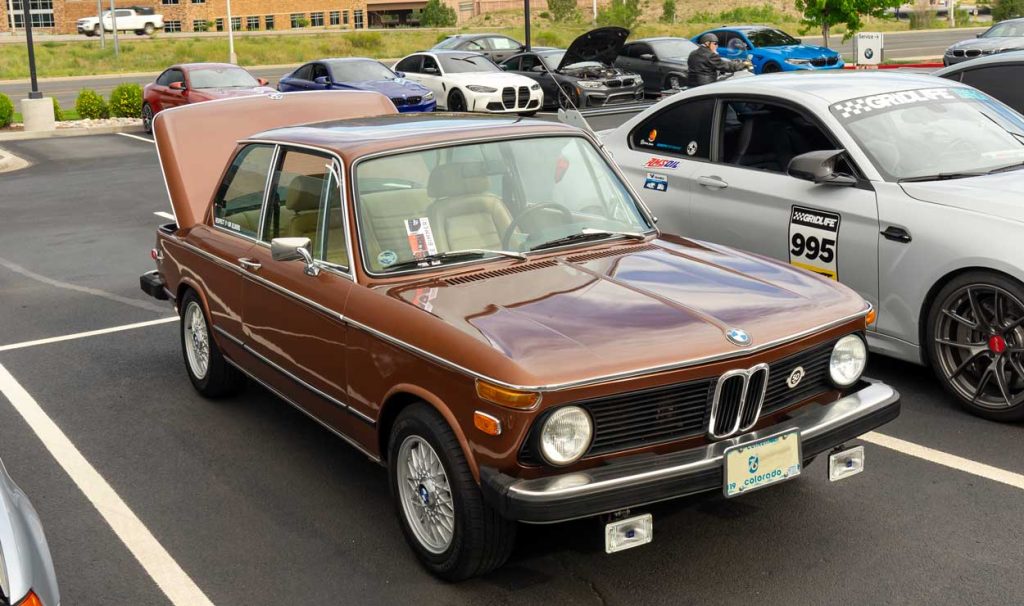
- BMW 1500
- BMW 1600
- BMW 1800
- BMW 2000
- BMW 2002
E Series (1980s-2000s)
- BMW E21 (3 Series)
- BMW E30 (3 Series)
- BMW E36 (3 Series)
- BMW E46 (3 Series)
- BMW E12 (5 Series)
- BMW E28 (5 Series)
- BMW E34 (5 Series)
- BMW E39 (5 Series)
- BMW E60 (5 Series)
- BMW E24 (6 Series)
- BMW E63/E64 (6 Series)
- BMW E23 (7 Series)
- BMW E32 (7 Series)
- BMW E38 (7 Series)
- BMW E31 (8 Series)
Other Discontinued Models
- BMW 1 Series Coupe/Convertible (E82/E88)
- BMW Z1
- BMW Z3
- BMW Z8
- BMW M1
Key Technologies and Innovations
iDrive
One of BMW's most renowned innovations, iDrive, revolutionized how drivers interact with their vehicles. Launched in 2001, iDrive is an advanced infotainment and control system that centralizes various functions into a single interface. The system is operated via a rotary controller and a central display screen, allowing drivers to easily navigate through menus and access features such as navigation, entertainment, vehicle settings, and connectivity options. Over the years, iDrive has evolved to include voice control, gesture control, and touchscreens, continually enhancing user experience and setting industry standards for in-car technology.
EfficientDynamics
BMW's EfficientDynamics represents a holistic approach to improving fuel efficiency and reducing emissions without compromising performance. Introduced in 2007, this suite of technologies encompasses a wide range of innovations, including:
- Auto Start-Stop: Automatically switches off the engine when the vehicle is stationary to save fuel.
- Brake Energy Regeneration: Captures energy during braking and converts it into electrical energy to recharge the battery.
- Electric Power Steering: Reduces energy consumption by using an electric motor instead of a hydraulic system.
- Lightweight Construction: Utilizes advanced materials such as high-strength steel, aluminum, and carbon fiber to reduce vehicle weight.
- Aerodynamics: Incorporates features like active air flaps, air curtains, and underbody panels to minimize aerodynamic drag.
These technologies work harmoniously to deliver better fuel economy and lower CO2 emissions while maintaining the dynamic driving experience that BMW is known for.
xDrive
BMW's xDrive is an intelligent all-wheel-drive system that enhances traction, handling, and stability in various driving conditions. Unlike traditional AWD systems, xDrive continuously monitors driving dynamics and road conditions, distributing power between the front and rear wheels as needed. This proactive system ensures optimal grip on slippery surfaces, improved cornering performance, and increased safety. Whether navigating through snow, rain, or dry pavement, xDrive provides confidence and control, making it an invaluable feature for everyday driving and spirited adventures.
M Performance
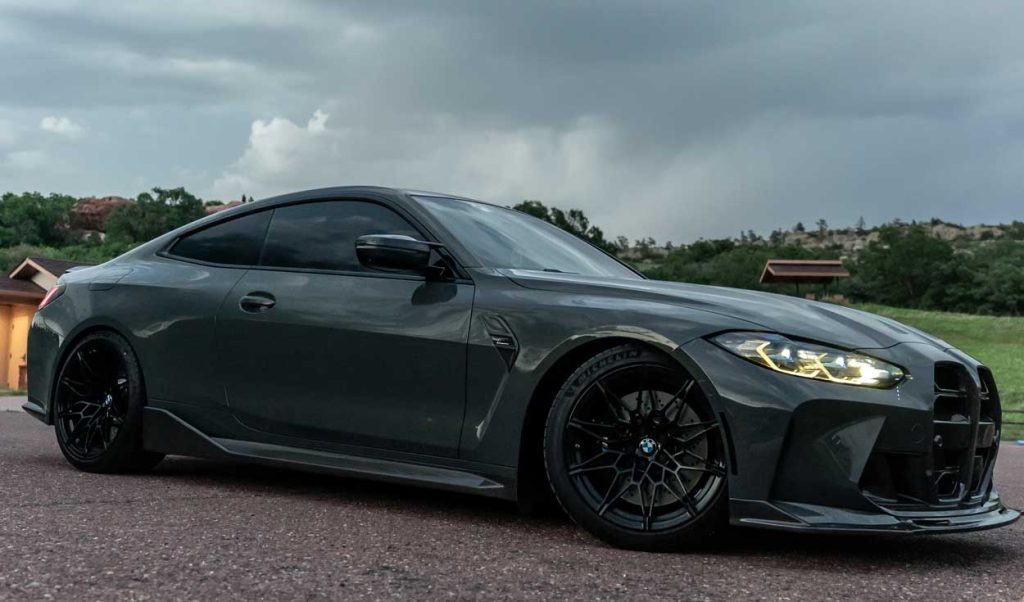
BMW's M Performance division embodies the pinnacle of high-performance driving. Rooted in motorsport heritage, M Performance features and technologies are designed to deliver exhilarating power, precision handling, and unmatched driving dynamics. Key innovations include:
- M TwinPower Turbo Engines: High-output engines with advanced turbocharging technology for instant power delivery and efficiency.
- Adaptive M Suspension: Adjustable suspension settings allow drivers to tailor the vehicle's handling characteristics to their preferences.
- M Servotronic Steering: Electrically assisted steering that adjusts responsiveness based on speed, providing sharp, precise control at high speeds and easy maneuverability at low speeds.
- M Carbon Ceramic Brakes: High-performance braking system that offers exceptional stopping power and resistance to fade under extreme conditions.
M Performance models, such as the iconic M3, M5, and M8, integrate these technologies to create vehicles that excel on both the road and the racetrack, offering enthusiasts an unparalleled driving experience.
BMW's commitment to Innovation is evident in its continuous development of cutting-edge technologies and systems. From the intuitive iDrive infotainment system to the comprehensive EfficientDynamics suite, the intelligent xDrive AWD, and the thrilling M Performance features, BMW remains at the forefront of automotive engineering. These key innovations enhance driving pleasure and contribute to the brand's legacy of excellence and forward-thinking design.
Motorsports Heritage
BMW's motorsports heritage is a testament to the brand's engineering prowess and relentless pursuit of performance excellence. Over the decades, BMW has left an indelible mark on the racing world, competing in and winning some of the most prestigious and challenging racing series globally.
Formula 1
BMW's foray into Formula 1 began in the 1950s, with their debut at the 1952 German Grand Prix. However, it was in the 1980s that BMW truly made its mark, supplying engines for teams like Brabham. The BMW-powered Brabham BT52, driven by Nelson Piquet, won the 1983 World Championship, showcasing the brand's engineering excellence. In the 2000s, BMW returned to F1 as a team owner, partnering with Williams and later Sauber. The BMW Sauber team achieved several podium finishes and victories, with Robert Kubica's win at the 2008 Canadian Grand Prix being a standout moment.
Deutsche Tourenwagen Masters (DTM)
BMW's involvement in DTM, one of the most competitive touring car championships, has been marked by significant success. BMW first entered DTM in the 1980s, and their BMW M3 quickly became a dominant force, winning the championship in 1987 with driver Eric van de Poele. After a hiatus, BMW returned to DTM in 2012 with the BMW M3 DTM. The comeback was spectacular, with Bruno Spengler winning the drivers' championship and BMW clinching the manufacturers' and teams' titles. BMW's continued presence in DTM has solidified its reputation for building high-performance, race-winning machines.
Endurance Racing
BMW's endurance racing pedigree is highlighted by its participation in iconic events such as the 24 Hours of Le Mans, the 24 Hours of Nürburgring, and the 12 Hours of Sebring. The BMW V12 LMR, developed in partnership with Williams F1, won the 1999 24 Hours of Le Mans, cementing BMW's place in endurance racing history. The brand has also achieved numerous victories in the American Le Mans Series (ALMS) and the IMSA WeatherTech SportsCar Championship, showcasing the durability and performance of BMW's engineering under grueling endurance racing conditions.
Touring Car Racing
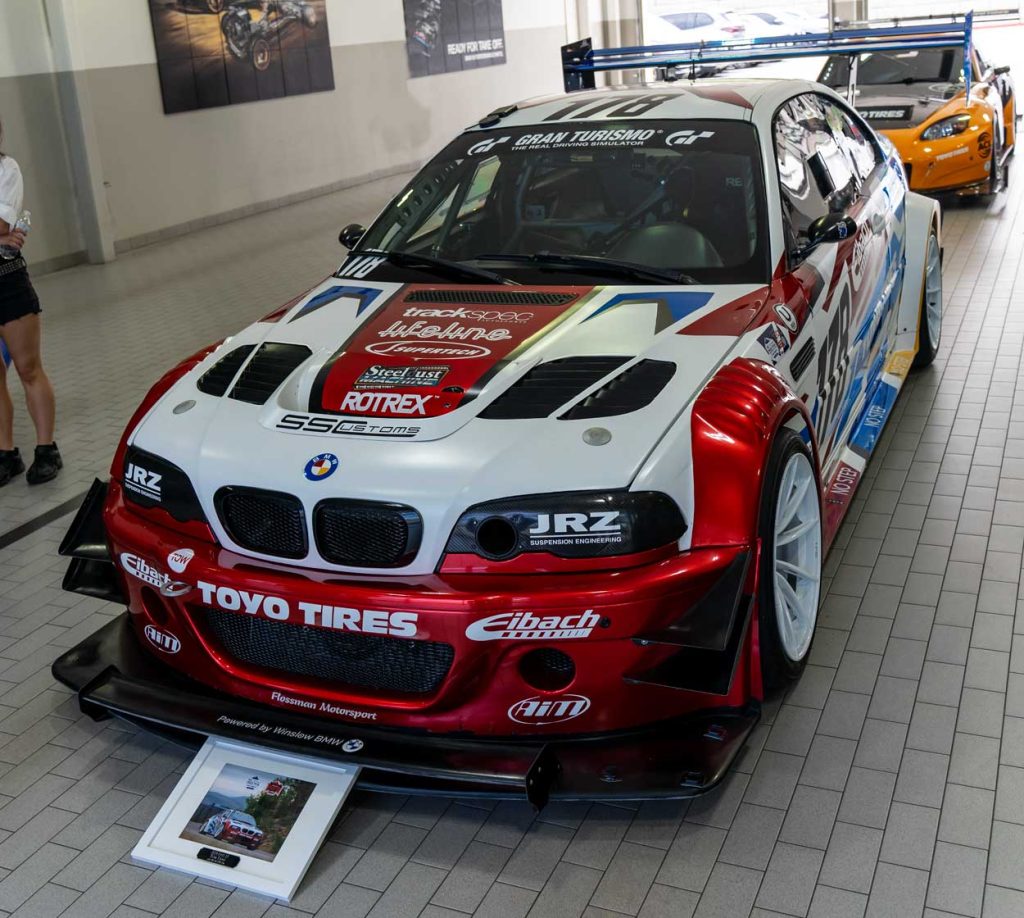
In addition to DTM, BMW has had a significant presence in touring car championships worldwide. The BMW 3 Series has been particularly successful, with multiple championships in the British Touring Car Championship (BTCC), the European Touring Car Championship (ETCC), and the World Touring Car Championship (WTCC). BMW's touring car success is a testament to the brand's ability to translate road car performance into competitive race cars.
Rallying
While less prominent than its circuit racing exploits, BMW has also made its mark in rallying. The BMW 2002, in particular, was a competitive force in the 1970s, achieving success in various rally championships. More recently, BMW's MINI brand has competed in the World Rally Championship (WRC), with notable performances that highlight the brand's versatility in different forms of motorsport.
Customer Racing Programs
BMW's commitment to motorsport extends beyond factory efforts. It has a robust customer racing program that supports private teams and drivers. BMW offers a range of race-ready vehicles, such as the BMW M4 GT3 and the BMW M2 CS Racing, enabling pirates to compete at a high level in various national and international racing series.
BMW's rich motorsports heritage reflects its engineering excellence and passion for performance. From the high-speed world of Formula 1 to the grueling demands of endurance racing, BMW has consistently demonstrated its ability to build race-winning machines. This legacy not only underscores BMW's commitment to motorsport but also influences the development of its road cars, ensuring that the spirit of racing lives on in every BMW vehicle.
Global Presence
BMW operates production facilities in several countries and has a strong global sales network. This extensive manufacturing and distribution infrastructure ensures that BMW can meet the demands of its diverse customer base worldwide.
Production Facilities
BMW's primary production facilities are in Germany, where the brand's engineering and manufacturing expertise originated. Key plants include those in Munich, Dingolfing, and Leipzig. Beyond Germany, BMW has established significant production sites in the United States, the United Kingdom, South Africa, and China. The Spartanburg plant in South Carolina, USA, is particularly notable as it is the global production site for BMW's X series SUVs, which are immensely popular in various markets.
Major Markets
Europe remains one of BMW's largest and most important markets. Countries like Germany, the United Kingdom, and Italy have strong sales figures, reflecting the brand's deep roots and enduring popularity in its home continent. The United States is a critical market in North America, with BMW consistently ranking among the top luxury car brands. The brand's presence in Canada is also substantial, with a strong dealer network and robust sales.
China represents another crucial market for BMW, driven by the country's growing demand for luxury vehicles. BMW has a significant production partnership with Brilliance Auto, producing several locally-produced models catering to Chinese consumers' preferences. The brand's expanding footprint in Asia extends to other countries, including Japan, South Korea, and India, where BMW continues to grow its presence.
In addition to these major markets, BMW has a solid presence in emerging markets across South America, the Middle East, and Africa. These regions are increasingly important as they represent new opportunities for growth and expansion.
BMW's global presence is a testament to the brand's adaptability and appeal across different cultures and regions. By strategically locating production facilities and cultivating strong sales networks worldwide, BMW ensures that it remains a dominant player in the global automotive industry.
Sustainability Efforts
BMW has long been at the forefront of the automotive industry's push towards sustainability, integrating environmental responsibility into its core business strategy. Recognizing the urgent need to address climate change and reduce carbon emissions, BMW has implemented numerous initiatives to minimize its environmental footprint while delivering high-performance vehicles.
BMW i: Leading the Charge in Electric Mobility
BMW i is the brand's sub-brand dedicated to designing and producing electric and hybrid vehicles. Launched in 2011, BMW i represents the company's commitment to innovative and sustainable mobility solutions. The lineup includes groundbreaking models such as the BMW i3, an all-electric city car, and the BMW i8, a plug-in hybrid sports car. Both vehicles showcase BMW's ability to blend sustainability with cutting-edge technology and dynamic performance.
The BMW i sub-brand also serves as a platform for developing and implementing advanced technologies, including lightweight construction using carbon fiber-reinforced plastic (CFRP), efficient energy management systems, and renewable materials in vehicle interiors. By pioneering these innovations, BMW I has set new standards for what electric and hybrid vehicles can achieve in terms of efficiency and driving pleasure.
Sustainability Goals: A Comprehensive Approach
BMW's commitment to sustainability extends beyond its vehicle lineup. The company has established ambitious sustainability goals to reduce its overall environmental impact. These goals are guided by a comprehensive approach encompassing a vehicle's entire lifecycle, from production to end-of-life recycling.
- Renewable Energy Use: BMW is dedicated to using renewable energy across its production facilities. The company has made significant investments in solar, wind, and hydroelectric power to ensure that a substantial portion of its energy needs are met through clean sources. For example, the BMW plant in Spartanburg, USA, is partially powered by methane gas from a nearby landfill.
- Efficient Production Processes: BMW continually seeks to improve the efficiency of its production processes to reduce energy consumption and waste. The company has implemented energy-efficient lighting, advanced water recycling systems, and innovative manufacturing techniques that minimize material waste.
- Sustainable Supply Chain: BMW works closely with its suppliers to ensure that sustainable practices are adopted throughout the supply chain. This includes responsibly sourcing raw materials, reducing emissions from transportation, and ensuring fair labor practices.
- Vehicle Recycling and Circular Economy: At the end of a vehicle's life, BMW is committed to ensuring that as much of the vehicle as possible is recycled or repurposed. The company has established a closed-loop recycling system that reuses materials such as aluminum and steel, reducing the need for virgin resources and lowering overall emissions.
- CO2 Emission Reduction: BMW has set specific targets for reducing CO2 emissions across its entire vehicle fleet. This includes developing electric and hybrid models, improving the efficiency of traditional internal combustion engines, and incorporating lightweight materials to enhance fuel economy.
Through these sustainability efforts, BMW aims to lead the automotive industry towards a more sustainable future. By prioritizing renewable energy, efficient production, a sustainable supply chain, and comprehensive recycling initiatives, BMW is making significant strides in reducing its environmental impact while continuing to deliver the high-performance vehicles that its customers expect.
Notable Models
BMW's lineup is renowned for its performance, luxury, and Innovation blend. Among its diverse range of vehicles, several models are particularly significant, each playing a key role in defining the brand's identity and success.
BMW 3 Series
The BMW 3 Series is one of the brand's best-selling and most iconic models. Since its introduction in 1975, it has set the standard for compact executive cars, combining dynamic performance, cutting-edge technology, and refined luxury. Known for its sharp handling, powerful engines, and stylish design, the 3 Series appeals to driving enthusiasts and professionals alike. Over the decades, it has evolved through multiple generations, each iteration enhancing its reputation as a benchmark in its class.
BMW 7 Series
The BMW 7 Series is the brand's flagship luxury sedan, epitomizing its commitment to excellence and sophistication. Introduced in 1977, it represents the pinnacle of BMW's engineering and design capabilities. It offers state-of-the-art technology, unparalleled comfort, and powerful performance, making it a favorite among luxury car buyers. The 7 Series showcases BMW's innovations, including advanced driver assistance systems, luxurious interiors with premium materials, and a smooth, powerful driving experience.
BMW X Series
The BMW X Series encompasses a range of SUVs that combine the brand's signature driving dynamics with versatility and practicality. From the compact and agile X1 to the luxurious and spacious X7, the X Series caters to various lifestyles and preferences. Notable models include:
- BMW X1: A compact SUV with a sporty driving experience and urban practicality.
- BMW X3: A mid-size SUV that balances performance, comfort, and versatility, making it a popular choice for families.
- BMW X5: A large SUV with ample space, powerful engine options, and advanced technology, perfect for those seeking luxury and utility.
- BMW X7: The largest and most luxurious SUV in the lineup, offering three rows of seating, premium amenities, and a commanding presence.
BMW M Series
The BMW M Series represents the high-performance division of BMW, where motorsport technology meets road car practicality. Developed by BMW's M division, these models are designed to deliver exhilarating performance, precise handling, and distinctive styling. Key models include:
- BMW M3: The high-performance version of the 3 Series, known for its powerful engine, aggressive design, and exceptional driving dynamics. The M3 has a storied motorsport heritage and remains a favorite among driving enthusiasts.
- BMW M4: The coupe and convertible counterpart to the M3, offering similar performance and handling characteristics with a sleek, sporty design.
- BMW M5: The high-performance version of the 5 Series sedan, combining luxury with breathtaking speed and handling. The M5 is a perfect example of a super sedan, capable of comfortable long-distance cruising and high-speed track performance.
- BMW M8: The pinnacle of BMW's M Series, available as a coupe, convertible, and Gran Coupe. The M8 offers blistering performance, advanced technology, and exquisite luxury, making it one of the most desirable models in the BMW lineup.
These notable models exemplify BMW's dedication to creating vehicles that deliver exceptional performance, luxury, and Innovation. Whether the versatile 3 Series, the wealthy 7 Series, the practical X Series SUVs, or the thrilling M Series, each model contributes to BMW's reputation as a leader in the automotive industry.
Future Directions
BMW continues to chart a course toward a future where Innovation and sustainability are at the forefront. The brand's strategic focus areas highlight its commitment to maintaining leadership in the luxury automotive sector while adapting to the industry's rapidly evolving landscape.
Electrification
BMW is intensifying its efforts to develop electric and hybrid vehicles, reinforcing its dedication to sustainable mobility. The BMW i sub-brand, which includes models like the i3 and i8, has set the stage for a broader range of electric vehicles (EVs) and plug-in hybrids (PHEVs). Upcoming models, such as the BMW i4 and the BMW iX, are poised to offer enhanced electric range, performance, and cutting-edge technology. By 2030, BMW aims to have EVs and PHEVs constitute at least 50% of its global sales, showcasing a clear shift towards reducing carbon emissions and promoting green technology.
Autonomous Driving
BMW is heavily investing in autonomous driving technology and connected car services. The brand's advancements in this field are evident in its BMW Personal CoPilot systems, which already offer advanced driver assistance features. Future BMW models will incorporate higher autonomy levels to achieve Level 3 and Level 4 autonomous driving capabilities. These technologies will enhance safety, convenience, and efficiency, transforming the driving experience. Moreover, BMW's collaboration with tech companies and participation in initiatives like the Autonomous Driving Campus in Unterschleissheim, Germany, underscores its commitment to leading the autonomous driving revolution.
Digitalization
Digitalization is a key pillar of BMW's future strategy, aimed at enhancing digital services and connectivity features for a superior customer experience. The BMW Operating System 7.0 and the BMW Intelligent Personal Assistant offer a highly intuitive and personalized in-car experience.
Future developments will see even greater integration of artificial intelligence, over-the-air updates, and advanced connectivity options. BMW is also expanding its digital ecosystem, including services like BMW ConnectedDrive, which offers seamless integration with smartphones and smart home devices. These advancements will ensure that BMW vehicles remain at the cutting edge of digital Innovation.
BMW remains a leading luxury automotive brand known for blending performance, luxury, and Innovation. As the automotive industry evolves, BMW's strategic focus on electrification, autonomous driving, and digitalization positions it to continue delivering exceptional driving experiences while embracing a sustainable and technologically advanced future.

